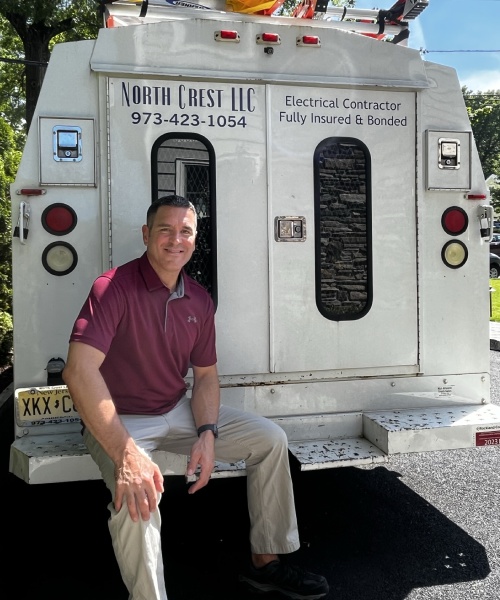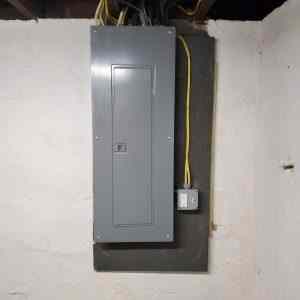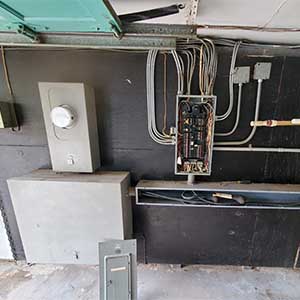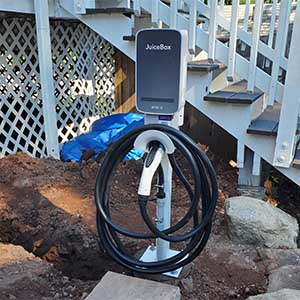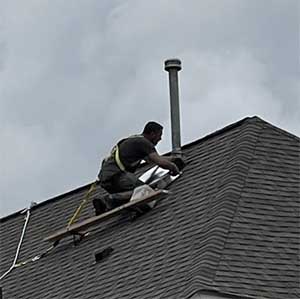Decoding Electrical Jargon
Let's Get Into the Details
Navigating the world of electrical work can often feel overwhelming, especially when confronted with a barrage of technical jargon. With my 30 years of experience as an electrician and as the owner of North Crest, LLC, I’ve come to realize the importance of clear communication between professionals and homeowners.
That’s why I’ve put together this comprehensive guide to break down and explain the electrical terms you’re likely to encounter. Whether you’re undergoing a home renovation, dealing with repairs, or simply looking to broaden your knowledge, understanding these terms can greatly enhance your comfort and confidence in dealing with electrical matters.
Looking for an Electrician in Glen Rock, NJ or surrounding areas? Give us a call today!
Understanding Base Electrical Terms
- Voltage (V): Imagine voltage as the pressure from your electrical system’s power source. It pushes electrons through wires, similar to how water pressure moves water through pipes. Voltage is what causes electric currents to flow, powering your devices and appliances.
- Current (Amps, A): Current is the rate at which electric charges pass through a conductor. The higher the current, the more electricity is flowing. It’s crucial for determining the capacity your wires and electrical appliances need to handle.
- Resistance (Ohms, Ω): Resistance measures how much a material opposes the flow of electric current. Higher resistance means less current flows through the circuit. Understanding resistance is key in selecting the right materials and components for safe and efficient electrical systems.
- Wattage (Watts, W): This is a measure of electrical power. In simpler terms, it quantifies how much work your electrical device does or how much energy it uses over time. Wattage is a critical factor in both electrical safety and energy efficiency.
- Circuit Breaker: A circuit breaker is a vital safety device in your home’s electrical system. It automatically shuts off electrical flow when it detects an overload or a short circuit, preventing damage to your system and averting potential fire hazards.
Looking for an Electrician in Glen Rock, NJ or surrounding areas? Give us a call today!
Understanding Wiring and Installation Terms
- Conduit: Conduits are like protective tunnels for your electrical wires. They come in various materials like metal or plastic and are used to protect wires from damage and reduce the risk of electrical fires.
- Grounding: This is a crucial safety practice where an electrical circuit is connected to the ground. Grounding provides a safe path for excess electricity, reducing the risk of electric shock or fire in the event of a fault.
- Junction Box: These boxes are the meeting points for electrical wires. Inside a junction box, wires are safely connected or spliced together. They’re essential for organizing and protecting wire connections.
- GFCI (Ground Fault Circuit Interrupter): A GFCI is a device designed to protect you from severe or fatal electric shocks. It detects imbalances in the electrical current and can shut off power within milliseconds, making it an essential component in bathrooms, kitchens, and other wet areas.
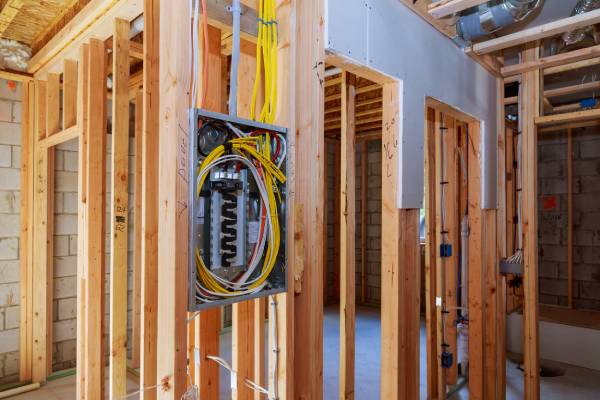
Hire a professional for your expert panel installation in Hawthorne, NJ or surrounding areas!
Deciphering Common Abbreviations and Acronyms
- AC (Alternating Current) and DC (Direct Current): AC and DC denote the two types of electrical current. AC, the standard used in most homes, changes direction periodically, while DC, commonly found in batteries, flows in a single direction. Understanding the difference is crucial when dealing with various electrical components and appliances.
- LED (Light Emitting Diode): LEDs are a modern, energy-efficient lighting technology. They use a semiconductor to emit light and are known for their long lifespan and low energy consumption, making them a popular choice in modern lighting solutions.
- PVC (Polyvinyl Chloride): PVC is widely used in electrical insulation. It’s a type of plastic that’s durable, resistant to fire and water, and provides excellent insulation for electrical wires.
Need an effective electric panel replacement in Hawthorne, NJ or surrounding areas?
Advanced Electrical Concepts
- Single-Phase vs. Three-Phase Power: In residential settings, single-phase power is common, where electricity is delivered through a single AC wave. In contrast, three-phase power, which uses three alternating currents, is typically used in industrial settings for its efficiency in operating heavy machinery.
- Load Calculation: This involves calculating the total power consumption of all the electrical devices and appliances in your home. Accurate load calculations are crucial for designing a safe and efficient electrical system that meets your home’s demands.
- Surge Protection: Surge protectors safeguard your electronic devices from voltage spikes in the power line. These spikes can damage appliances and electronics, so incorporating surge protection is a wise precaution in safeguarding your home’s electrical devices.
Stop your search for an electrician nearby and give us a call today!
Hopefully You Learned Something!
Demystifying electrical terminology is not just about understanding your electrician; it’s about empowering yourself to make informed decisions about your home’s electrical system. In my three decades in the field, I’ve seen how knowledge can transform a homeowner’s experience, turning what might seem like an overwhelming problem into a manageable task.
This understanding fosters better communication between you and professionals like myself, and it also enhances your ability to spot potential issues, appreciate the intricacies of electrical work, and value the safety protocols that are essential in this field.
At North Crest, LLC, our commitment extends beyond providing top-notch electrical services; we strive to be educators and allies to our clients. We believe that a well-informed homeowner contributes to a safer, more efficient, and more harmonious living environment.
So next time you encounter a term or concept that’s unclear, feel free to ask us for clarification. By bridging the gap between technical jargon and everyday language, we aim to illuminate not just your homes but also your understanding of the electrical world.
If you need help rewiring your home in Hawthorne, NJ, feel free to give us a call!
We Offer the Electrical Services in Rockland County, NY
and the surrounding areas.

North Crest, LLC
5.0
Ken re-wired my mother’s entire electrical system. He was professional , extremely efficient and the cost came in under budget. He was communicative every step of the way, explaining exactly what had to be done and why. I highly recommend North Crest, LLC.
Ken installed a 60 amp circuit out to the driveway for an electric car charger. He was extremely prompt and responsive. Showed up early. Job was done efficiently and the inspector remarked about how good the work looked. He also cleaned up our panel and made things safer.

North Crest, LLC
5.0
Ken was excellent to work with. We had an electric car charger installed in our garage and Ken was extremely knowledgeable and answered all our questions. His work work done flawlessly and efficiently. He was also very courteous and clean. I would recommend him for any job you need done!
-Ira M.

